In the same year as the birth of Nelson Mandela
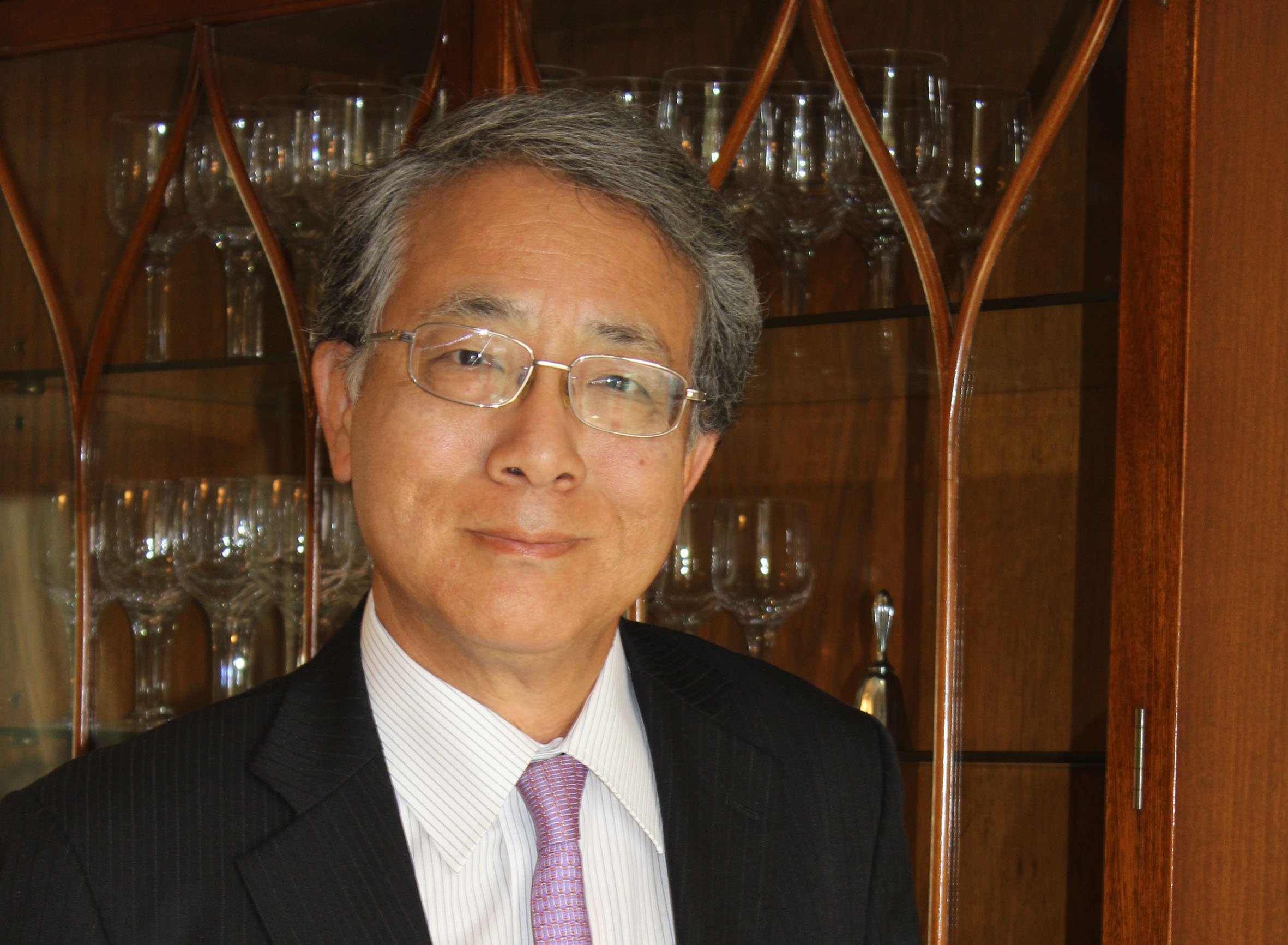 Shigeyuki Hiroki, Japan’s ambassador to South Africa
Shigeyuki Hiroki, Japan’s ambassador to South Africa
Japan’s ambassador to South Africa, Shigeyuki Hiroki, writes:
2018 is a milestone year for both South Africa and the South Africa-Japan bilateral relationship. Nelson Mandela, who became South Africa’s first democratically elected president, was born on July 18 1918. I still remember vividly my first trip to Umtata and Qunu in the Eastern Cape, the birthplace of Madiba. To walk where he walked, seeing the rolling hills and beautiful cattle, which he too had seen, moved me deeply. In the same year as the birth of Madiba, the first Japanese official mission was dispatched to South Africa in the form of the consulate in Cape Town, which was established as Japan’s first mission on the African continent. Prior to this, Julius Otto Jeppe was appointed as the honorary consul of Japan in South Africa in 1910.
I think of those Japanese diplomats coming here, only about 30 years after the establishment of the first democratic constitution of Japan, the Meiji Constitution, and just a generation after the opening of Japan to the world, struggling with both the challenges of international relations in a new world, and with learning about this new country to which they had been sent. Each generation of Japanese diplomats posted here over the past 100 years has followed in their footsteps, learning a little more about this beautiful country and its people, and putting their efforts into deepening the mutual understanding between South Africa and Japan. Standing at this momentous anniversary with great respect for the achievements of Nelson Mandela — who visited Japan three times — I have reaffirmed my commitment to further strengthening our bilateral relationship.
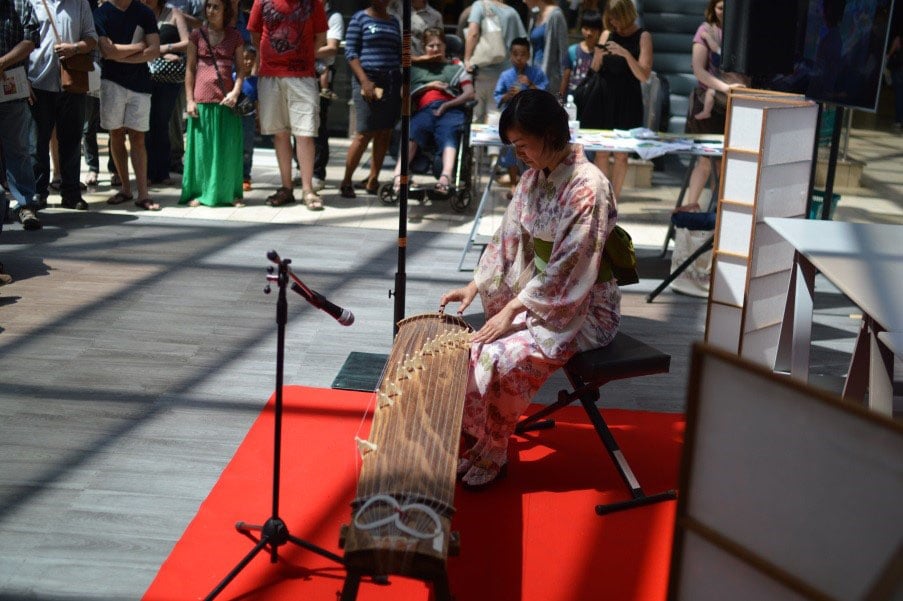 The Japanese embassy is exposing South Africans to Japan’s rich cultural heritage; here is a koto demonstration
The Japanese embassy is exposing South Africans to Japan’s rich cultural heritage; here is a koto demonstration
In celebrating the 100th anniversary of these two events, the Embassy of Japan and the Office of the Consul of Japan in Cape Town plan to host a series of events this year: a pop-culture event, Japanese film festivals, a washoku (traditional Japanese cuisine) festival, an academic seminar on Japanese history, and a bilateral seminar at the South Africa-Japan University Forum.
As part of this series of events, we held the Japan Cultural Expo at Brooklyn Mall in Pretoria in early March, and Japan Day 2018 at the Oude Libertas Wine Estate in Stellenbosch on March 17. These attracted the attention of thousands of visitors, who were exposed to some of Japan’s old and rich cultural heritage, from ikebana (flower arrangement), bonsai (ornamental trees) and Japanese traditional costumes, to demonstrations in martial arts and koto (a traditional Japanese stringed musical instrument). Through these events we wish to make 2018 a significant year in bringing Japan closer to the people of South Africa.
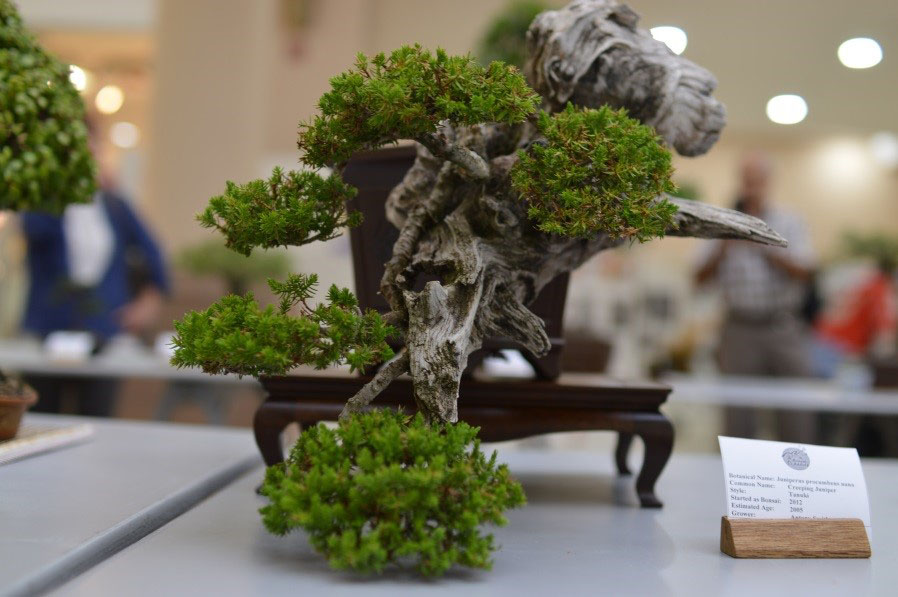 Bonsai is a Japanese art form that produces small trees in containers that mimic the shape and size of full-size trees
Bonsai is a Japanese art form that produces small trees in containers that mimic the shape and size of full-size trees
As a country that overcame the hardships of post-war reconstruction from scratch through the transformation of its economy, Japan has been offering expertise, insights and empowerment to help African partners develop their economies. The biggest initiative by Japan to assist African development was the launch of the Tokyo International Conference on African Development (TICAD) in 1993. Over the course of more than 20 years, this forum has a track record of improving social and economic conditions in Africa, mainly through grant aid and technical assistance. In the five years starting from fiscal year 2008, which was covered by TICAD IV, for example, the government of Japan built 1 321 elementary and middle schools, improved 4 778 healthcare and medical facilities, and provided safe water to around 11 million people.
Having recognised the importance of enhancing industrial human resource development in order to achieve economic transformation for Africa’s long-term growth, at the TICAD V in 2013, Japan’s Prime Minister Shinzo Abe announced the launch of the African Business Education Initiative for Youth, which is aimed at providing African people with opportunities for higher education and enhancing networking with the Japanese private sector.
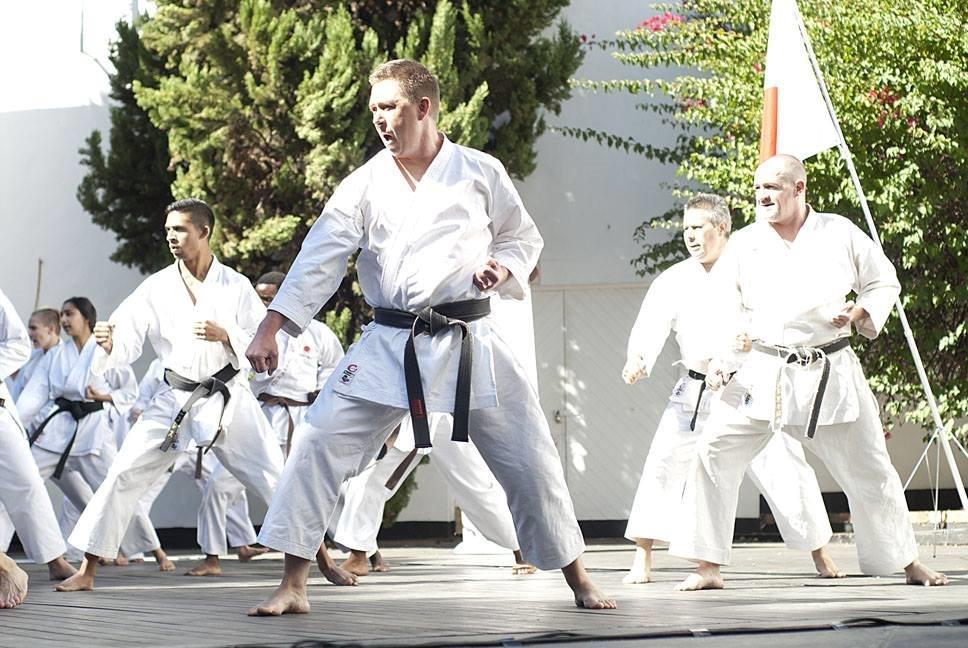
A martial arts demonstration took place at Oude Libertas Wine Estate in Stellenbosch on March 17
So far under the initiative 104 South Africans have been afforded the opportunity to study master’s courses at Japanese universities, as well as gain valuable work experience through internships at Japanese corporations. We expect the participants in the programme to make great contributions to the development of industries in Africa. On March 8, we hosted a welcoming session for South Africans returning from the initiative, where I was happy to listen to the participants talk about what they had experienced and learnt during their valuable three-year-stay in Japan. We would like to continue to assist Africa to be more prosperous via the promotion of private, sector-led economic growth.
The highlight of the forum came in 2016 when TICAD VI took place in Kenya, on African soil for the first time, where Abe announced the establishment of the Japan-Africa Public and Private Economic Forum.
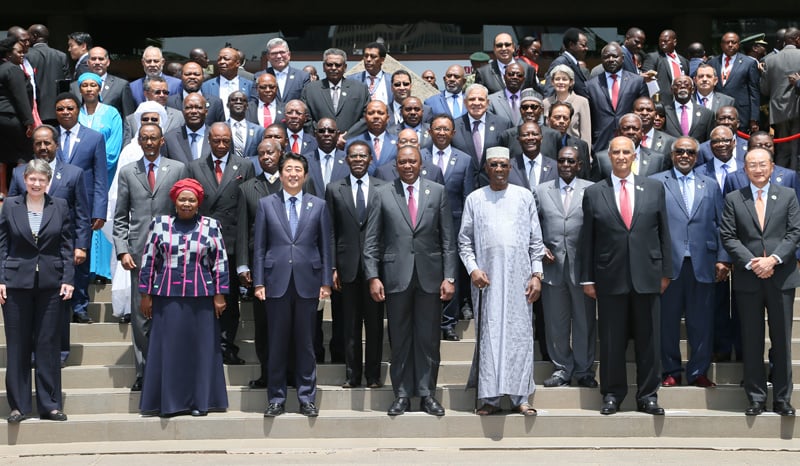 The TICAD VI opening ceremony
The TICAD VI opening ceremony
He said: “The forum will bring the power of the public and the private sectors together to forge solutions. Japanese Cabinet members and top business executives will visit Africa every three years to meet with African companies to identify what needs to be done to enable Japanese and African companies to do more business together going forward.”
In this regard, we are glad that the first forum will be held at the Sandton Convention Centre on May 3 and 4, 2018.
The TICAD forum is held every three years, with alternate hosting by Japan and Africa. The next forum, TICAD VII, is due to be held in Yokohama in 2019, when we look forward to inviting President Cyril Ramaphosa to Japan again. In 2015, then Deputy President Ramaphosa visited Japan along with a high-level government and business delegation to explore its co-operative partnerships, mainly aimed at boosting economic growth based on the promotion of innovation and technology.
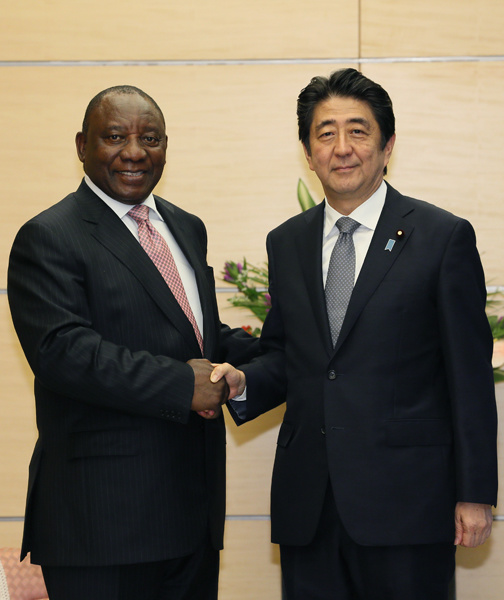
President Cyril Ramaphosa with Japan’s President Shinzō Abe
As the Ambassador of Japan to South Africa, I am pleased to have witnessed many initiatives by Japan that are aimed at promoting people-to-people exchanges between the two countries. One of the best examples is the Japan Exchange and Teaching Programme. Since 1997, 610 South Africans have taken part in this programme, staying in Japan for between one and five years to teach English to young students in schools throughout the country. The programme aims to enhance internationalisation in Japan’s local communities with the help of foreign English speakers, while learning a lot about Japan in a variety of ways. Through this cultural exchange participants become bridges between our two countries by sharing their experience in Japan with the people of South Africa.
Last but not least, Japan will be hosting the Rugby World Cup in 2019, as well as theTokyo Summer OlympicandParalympic Games in 2020, where we hope to see a great many visitors from South Africa and all the other participating nations. I know that the Japanese visitors to South Africa during the 2010 FIFA World Cup enjoyed themselves immensely, and we look forward to returning your hospitality.
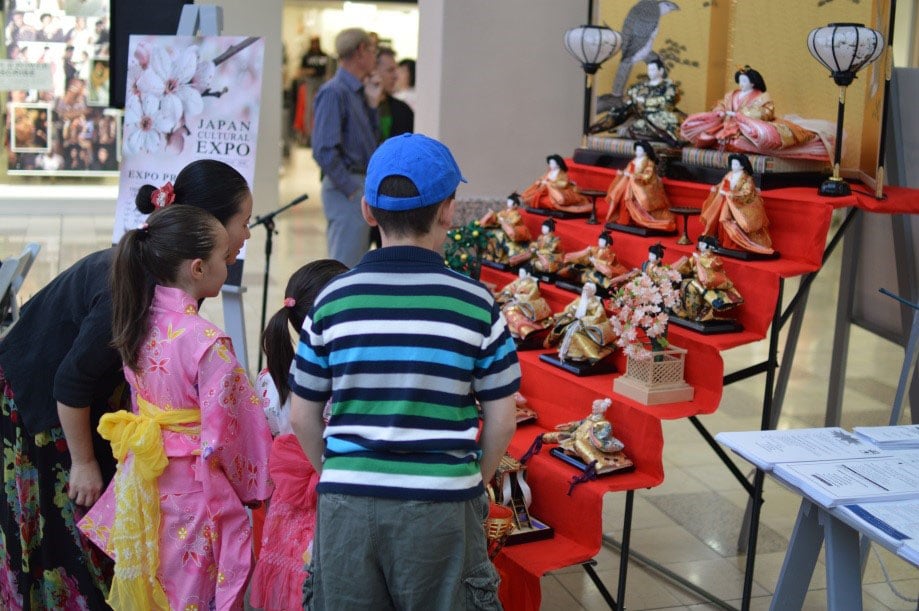 Through cultural events the Japanese embassy wishes to make 2018 a significant year in bringing Japan closer to the people of South Africa
Through cultural events the Japanese embassy wishes to make 2018 a significant year in bringing Japan closer to the people of South Africa